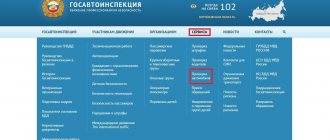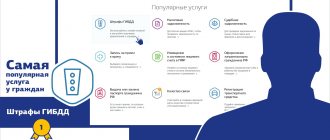In 2021, the number of Russians who found themselves under a travel ban increased by 76% and amounted to about 3 million people. According to the head of the Unicom24 financial market, Yuri Kudryakov, the situation will not change for the better in the near future and in 2021, potentially 10% of the country’s working population will not be able to travel abroad.
This means that every tenth person can be refused directly at customs. It will not be possible to solve the problem immediately, even by quickly eliminating the cause of the ban. As a result, the trip will not take place. The money will not be returned.
Under these conditions, it is advisable for a person planning a trip to another country to check whether there is a travel ban. As a rule, to clarify the situation, most citizens limit themselves to checking debts on the official websites of the traffic police, tax office, FSSP, or look for information on specialized resources.
However, information obtained in this way will not provide a reliable answer.
- Debt, although the most common, is not the only reason why a traveler will not be able to pass the checkpoint.
- Having a debt, even 100 thousand rubles, does not mean at all that a person will be detained at customs.
- The current register of citizens with the status of “restricted to travel” is located only in the database of the Border Service, to which ordinary Russians do not have access.
To understand when you can be on the “black” list, and which verification method is the most reliable, you should refer to two legal acts:
- Federal Law 114 art. 15;
- Federal Law 299. Art. 67.
Conditions under which they will not be allowed to go abroad
Art. 15 Federal Law 114 defines the category of persons whose temporary travel restrictions are related to professional activities, specific legal status and other circumstances.
According to this article, the “black list” of border guards will include:
- Suspects accused of a crime. The ban will remain in effect until the case is closed and a decision is made on it.
- Conditionally released, convicted. The restriction will be lifted only after the criminal record has been cleared or the sentence has been served.
- Called up for compulsory military service or sent to alternative. Departure is not possible until the end of the passage period.
- FSB employees, including civilian personnel. The ban is imposed until the end of the service period and is lifted in exceptional cases (the need for treatment abroad, the death of a loved one) with the permission of a superior official.
- Possessing, by the nature of their activities, state secrets of special secrecy or importance.
- Those who evade obligations imposed by the court. The ban will remain in force until the requirements of the court decision are fulfilled or the parties reach a mutual agreement.
- Those who gave false information when preparing exit documents.
- Going through bankruptcy proceedings. The ban is valid until the court recognizes the financial insolvency of the citizen.
According to Art. 67 Federal Law 299, the bailiff has the right to temporarily restrict departure from the country:
- A person who has not satisfied non-property requirements (reinstatement of an illegally dismissed employee).
- A person who has a total debt of more than 10 thousand rubles to pay:
- alimony;
- compensation for harm caused to health, death of the breadwinner;
- compensation for moral damage, property damage received as a result of the crime.
- A citizen who has not fulfilled other monetary obligations (traffic police fines, taxes, utility bills, loans) totaling more than 30 thousand rubles.
Thirty thousand rubles were not taken out of thin air. Experts conducted a study and found that it is precisely this debt limit that distinguishes a willful defaulter from someone who forgot to repay the loan payment on time or accidentally accumulated unpaid fines.
If two months after the expiration of the period for voluntary execution the debt is not repaid, the threshold at which a ban can be issued will be reduced to 10 thousand rubles.
Debt consists of several monetary obligations. That is, if several small debts in total exceed the established norm, the bailiff will have grounds to restrict travel.
P. 48 Resolution of the Supreme Court of the Russian Federation No. 50 of November 17, 2015
If each of the property claims unfulfilled by the debtor does not exceed the minimum amount of debt determined by Part 1 of Article 67 of the Law on Enforcement Proceedings, in the presence of which a temporary restriction may be established on the debtor’s departure from the Russian Federation, and the total amount of property claims unfulfilled by the debtor under the consolidated enforcement proceedings exceeds this amount, then within the meaning of Articles 4, 64 and 67 of the said Law, the establishment of a temporary restriction on the debtor’s departure from the Russian Federation is permissible.
Banning procedure
The procedure for imposing a ban is as follows:
- The person to whom the defendant has an unfulfilled obligation applies to the court to resolve the issue.
- In case of a favorable outcome, the plaintiff receives a writ of execution, which he sends to the FSSP authorities.
- The bailiff, having accepted the writ of execution, initiates proceedings within three days (Article 30, paragraph 8 of Federal Law 299) and sets the debtor a period (5 days) for voluntary compliance with the requirements.
- If the obligation is not fulfilled within the established period, the SSP employee, on his own initiative or at the request of the creditor, has the right to issue a resolution to temporarily restrict the debtor’s travel outside the Russian Federation.
- The resolution is approved by the higher management of the bailiff.
- Information about the decision made is transmitted to the border and federal migration services. A copy of the decision must be sent to the debtor the next day after its issuance. As practice shows, the recipient often does not receive documents and remains in the dark about the status of “restricted to travel.”
The resolution is valid for 6 months. After this time, the ban is automatically lifted. If the debtor does not fulfill the obligation, the bailiff has the right to again restrict travel for six months and do so until the requirement of the writ of execution is fully satisfied (Appendix No. 54 to the FSSP Order No. 318 of July 11, 2012).
Thus, the debtor has a green light at customs until a corresponding decision is issued.
Often, bailiffs, even if the debt exceeds 30 thousand rubles, do not impose a ban on leaving. The reason is the enormous workload. According to research conducted by the Accounts Chamber in September 2021, one SSP employee handled more than 400 cases monthly, which is 18 times the established norm. Civil servants, overwhelmed with a large volume of work, simply do not have time to perform their duties efficiently. If the collector does not show activity, the debtor has hope of traveling abroad without any problems.
So it turns out that the presence of debt and enforcement proceedings in itself is not an indicator that a person will not be released from the country.
In addition to the bailiff, the court can restrict travel abroad. For example, if the writ of execution was issued on the basis of a notarized agreement on the payment of alimony, the certificate of a commission on labor disputes, acts of authorized bodies, officials. In this case, the duration of the ban is determined by a court decision.
What could cause a ban?
Restrictions on travel outside the country may be applied in the following situations:
- A citizen is in the status of a suspect or accused for a crime committed. In this case, the ban will remain in effect until the court makes an acquittal, the prosecutor closes the case, or the charges against the citizen are dropped.
- A citizen is undergoing military service in the army. During the period of granting him a short-term leave, he will not be able to travel outside the country. Current legislation leaves an exception only for contract workers, and even then they need special permission to cross the border. If you have received a legal exemption or deferment from conscription, restrictive measures cannot be applied.
- A person evades fulfilling the duties that were assigned to him by a sentence or court order.
- A citizen has access to state secrets. There are a lot of nuances in this area associated with various categories of secrecy, each of which imposes certain restrictions. If this is the minimum level of secrecy, then a travel ban is usually not applied. The “top secret” or “highly important” statuses provide for a five-year ban from the moment of last contact with classified documents from these categories.
A separate category of persons who are prohibited from traveling abroad are active FSB officers. The difference is that they are familiar with such measures in advance, even at the stage of signing the service contract. It is possible to lift the ban only by submitting a report to higher management, and this must be done no later than three months before the date of the planned trip.
Where and how to find out if traveling abroad is prohibited?
On the website of the tax inspectorate and traffic police
On the website of the Federal Tax Service and the State Traffic Safety Inspectorate, you can only check the amount of your existing debt, nothing more. There is no information about the ban. The tax authority does not have the right to restrict travel. Information about a debt of more than 10 thousand rubles suggests possible difficulties with crossing the border.
At the bailiffs (FSSP)
On the FSSP website you can find out about the existence of enforcement proceedings, the number, amount of the claim, the reason for the occurrence, full name, contact information of the bailiff handling the case. There is also no information about the ban. The debtor is left to guess and hope that the official “forgot” to issue a ruling, and the way is open at customs.
To clarify the situation, you can personally contact the bailiff by calling or coming to an appointment. In this case, there is a high probability that the SSP employee, who did not impose the ban on time, will learn about the mistake and immediately correct it.
On the official website of the Russian Ministry of Internal Affairs
You can check the presence of restrictions on the official website of the Russian Ministry of Internal Affairs by performing a series of sequential actions:
- Go to the website, select “Online Services”.
- Click on the “Reception of applications from citizens and organizations” tab.
- From the list, select “Main Directorate for Migration Issues” (located at the very end of the list).
- Click "Continue".
- Confirm that you are familiar with the information about the rules for filling out, registering an application, and the deadline for receiving a response by checking the appropriate box.
- Click “Submit a request”.
- Fill out the fields, write a request for information about the existence of a ban.
The response will be emailed within 30 days.
On the State Services website
On the State Services website you can find out about the existence of a ban in 3 minutes. To take advantage of this opportunity, the user must be registered in the system. True, you will have to spend time or money on this.
When registering a personal account, you will need to have a verified account. To create one, you need to contact the MFC or send a request by mail, which will take a certain amount of time. As an option, you can purchase an enhanced qualified electronic signature costing 1 thousand rubles.
It’s easier if a person is a client of Sberbank or Tinkoff. In this case, you can get a confirmed account online in Internet banking and it will take no more than 10 minutes.
After registering in your personal account, you should send a request about the progress of enforcement proceedings, having previously found out the number and opening date on the FSSP website.
On other information resources
There are many sites on the Internet that position themselves as a source of reliable information about the existence of the ban. But upon closer examination, it becomes clear that most online resources simply duplicate information from official sources, showing debts that may serve as grounds for restricting travel.
Most popular:
- The official website of the FSSP is a free resource that shows data on existing debts in enforcement proceedings, due to which traveling abroad may be impossible.
- RU. To check for open court cases, tax debts, fines and overdue loans, the user needs to pay 199 rubles. The answer will be sent to your email address.
- Failure to fly. The Russian Federation, the most popular portal among those traveling abroad, does not provide a specific answer. Shows the probability of departure as a percentage. The result is issued in the form of a sheet with statistics on which the debt is indicated. The cost of the service is 99 rubles. Users like the resource for the speed of obtaining information and the possibility of free consultation. The site owners claim that the information provided to customers is current at the time of the request.
- The unofficial FSSP website is a free resource. The answer comes almost immediately. According to users, the information is always reliable and up-to-date. Here you can find out the debt for enforcement proceedings, traffic police fines and pay it.
What to do if there is a debt/ban
As practice shows, it is advisable to inquire about the possibility of crossing the border at least two weeks before departure.
If it turns out that there is enforcement proceedings or debt, you need to:
- pay the debt off;
- contact the bailiff;
- provide proof of payment made;
- ask for the ban to be lifted.
Having made the payment, it is worth remembering the heavy workload of the performers and be sure to visit the SSP employee, making sure that the necessary actions to close the case and lift the restrictions will be taken.
According to Art. 67 clause 7 of Federal Law 299, the official, no later than one day from the moment of receiving confirmation of payment, must issue a resolution to lift the ban (Article 67 clause 7 of Federal Law 299), send information about this to the Central Administration of the FSSP of Russia, from where it will be transferred to the FSB .
All this will take time. FSSP director Dmitry Aristov, giving an interview to the Kommersant newspaper in May 2021, claimed that the restriction would soon be lifted 23 minutes after the debt is repaid.
But for now, removal from the “black list” of customs officers has to wait much longer and you need to be prepared for this.
If a person does not have the opportunity to pay off the entire debt at once, you can negotiate with the bailiff about gradual repayment and ask him to lift the restriction.
There are also loopholes for those who are unable to deal with their debts and obligations. Debtors who are not allowed to travel may try to travel around the border through Lithuania and the states of the “Customs Union”: Uzbekistan, Kazakhstan.
Until recently, this scheme worked. But since mid-2017, border guards of Russia, Kazakhstan and Belarus began to exchange information, so this method of crossing the border is increasingly malfunctioning.
How to lift a ban on traveling abroad
- Full payment of the debt. The debtor is obliged to approach the bailiff who has the case. A receipt is printed out for him (you can print it yourself on the FSSP website). Then, go to any bank and pay.
- The debtor agrees with the bailiff on the amount of the monthly payment. If the creditor does not require a ban on traveling abroad, the bailiff will not do this and will lift the restrictions after several payments.
- The debtor’s ban on traveling abroad will be lifted if it is a work necessity. Without help, he will not be able to pay off his debts. But if the lender is not satisfied with this, then the borrower will have to look for a new job.
- The bailiff's period of execution if the borrower does not pay is not unlimited. It is necessary to make a decision to terminate enforcement proceedings due to the impossibility of collection. Compulsory measures will be lifted on their own.
Minuses:
- you cannot have property;
- you cannot live at the registration address;
- You cannot work officially;
- You will have to wait at least a year.
- Find a lawyer and go to court. The ban on traveling abroad violates constitutional human rights. As a rule, bailiffs make a bunch of violations, prohibiting the debtor from traveling outside the Russian Federation. For example, they do not notify about this. The borrower may not even know that there was a court hearing and enforcement proceedings were initiated.
But if the bailiffs prove that the debtor knew about the debt, received notice of the initiation of enforcement proceedings against it, and does not live at the registered address (hides), he will not win the court.
Important! If the debtor has lifted the ban on traveling abroad, this decision will not be implemented immediately. It will take two months to notify all agencies, including the border.
Customer Reviews
Gratitude I express my deep gratitude to lawyer Konstantin Vasilyevich for his attentive, kind, and, most importantly, very clear and competent explanation of my situation. It's nice to know that the world is not without good people. I wish Konstantin Vasilyevich good health, success in everything, prosperity, good, grateful clients and all the best. Sincerely.
Thanks to Pavlyuchenko A.V. from Sonets V.V. I express my deepest gratitude to Alexander Viktorovich Pavlyuchenko for the consultation and competent approach to the matter, as well as the successful outcome in my problem. I also want to express my gratitude for your kindness. I wish you success in this work that is necessary for us.
Sincerely, Sonets V.V. 05/17/2018
Gratitude from Kikkas V.P. Kikkas V.P. I am grateful to the Legal Agency of St. Petersburg for understanding the situation and timely assistance in my seemingly hopeless situation, personally to Denis Yuryevich Stepanov, I hope to continue to cooperate.
Kikkas V.P. 08.11.2018
Thanks to Mavrichev S.V. from Bars Dan A. I thank the wonderful Lawyer Sergei Vyacheslavovich Mavrichev for thorough, competent advice and human mutual assistance to all his clients who are in deep need of qualified and timely legal and psychological advice.
Leopard Dana A. 09/18/2018
Gratitude to Vasily Anatolyevich Dear Lyubov Vladimirovna.
I would like to express my gratitude to Vasily Anatolyevich for his competent legal assistance in solving my difficult case. I wish you and your company further prosperity and success in your hard work.
From the bottom of my heart and with best wishes. 05/03/2018
Gratitude from Truk N.N. I would like to express my gratitude to Vasily Anatolyevich Kavalyauskus, Alexander Viktorovich Pavlyuchenko and Maxim Andreevich Lobur for providing qualified legal assistance, with the help of which my problem was resolved quickly and clearly. When contacted, I always found understanding and attention. It’s good that the “Society for the Protection of Consumer Rights” employs such lawyers and advocates. I wish you success in your future work and defending the interests of consumers.
Sincerely, Truk N.N.
07.05.2018
Review by Sokolov M.Yu. I express my gratitude to your company, as well as Denis Yurievich Stepanov and Daria Valentinovna Kutuzova for their conscientious attitude to their duties.
With sincere respect, Sokolov M.Yu.
Thanks from Radhuan M.R. Dear Kavaliauskas Vasily Anatolievich. Let me express my sincere gratitude for the qualified legal assistance provided. Thanks to your professionalism, I was able to achieve a decision in my favor. I wish you further prosperity and professionalism.
Radhuan M.R. 06/08/2018
Feedback from Goncharova I, Venera Konstantinovna Goncharova, express my gratitude to Andrey Valerievich Ermakov, Yana Maksimovna Matveeva, Daria Vasilievna Kutuzova and the entire team. I would like to note that the work was completed within the agreed time frame and with good quality. They showed a professional approach and excellent organization of work. I would like to express my gratitude to the entire team for their high-quality work and wish you further development of your company.
Sincerely, Goncharova Venera Konstantinovna.
Review by B.I. Goreky Gratitude to Yuri Vladimirovich from B.I. Goreky for the consultation on family rights.
How to lift a ban on entry into Russia
There are situations exactly the opposite. A person moves for permanent residence to another country, stops fulfilling financial obligations, but then reasons arise why they need to return for a while.
During the period of absence, a trial takes place and the bailiffs impose restrictions on travel. The person at customs cannot get into Russia. They won't let him in.
What to do in this case:
- Pay your debt at the airport in special terminals.
- Go back.
If a person is not a citizen of the Russian Federation, he is obliged to comply with the laws of the country, and they are such that bans are imposed automatically. Therefore, if a debt arises, you need to find out about the write-off on the FSSP website and pay. Otherwise, there is a possibility that customs will not give the go-ahead.
Court decisions
Accident at a pedestrian crossing
The case of a defective fur coat
Money has disappeared from the card
The car dealership does not give away the car
Unified bankruptcy procedure for spouses
Compensation for damages in favor of the buyer
Cancellation of the ban on registration actions
Along with the ban on leaving the country, a forced restriction is automatically placed on the registration of cars and real estate. This measure will allow bailiffs to seize property to pay off the debt.
Important! If you sell a car or real estate in violation of the law, you may face criminal prosecution.
You can resolve the issue of removing a car or apartment from seizure by paying the debt or agreeing with the bailiff on timely monthly payments.
How can I get information about a travel ban?
If you have any doubts about the ban, it is better to find out about it in advance than to get an unpleasant surprise when crossing the border. Usually the decision to impose a ban is sent by mail, but the absence of such a document does not mean that everything is in order. Today, to obtain such information, it is not necessary to leave home or send written requests to various authorities. The Internet will always help out, because up-to-date data can be obtained on various sites:
- Federal Bailiff Service. It contains up-to-date information about debtors for whom enforcement proceedings have been initiated, about the seizure of their property and other restrictions imposed. For convenience, you can print out a receipt for paying the fine with all the necessary details, and then make the payment.
- State services, where information about existing debts and unpaid fines is posted. Found yourself on the list? This means that the travel ban is already in effect.
- Inspectorate of the Federal Tax Service.
It should be understood that even if bailiffs have initiated enforcement proceedings against you, this does not mean an automatic ban on leaving. Find out exactly what restrictive measures have been taken and what needs to be done to remove them.
Bottom line
The easiest way to clarify the possibility of traveling abroad is to check the database of enforcement proceedings on the official FSSP portal, then find out the progress of the case on the State Services website or in person with a bailiff.
It is difficult to trust information obtained from commercial or free resources. It is unknown from what sources it is taken and how relevant it is.
Advice: fulfill your financial obligations on time and regularly check your debt on the official websites of the executive bodies.
If you have questions about the topic of this article or require specialist advice, describe the problem in the comments. You can also contact us through the pop-up window form or call the numbers provided. We will definitely answer and help.










